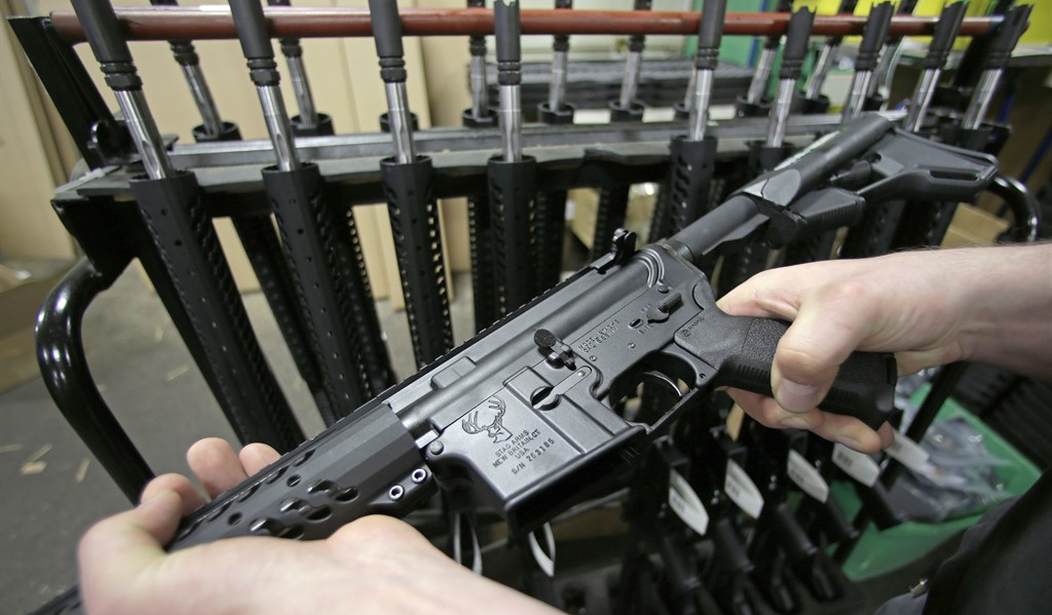If there's a bad idea regarding gun control, someone in Massachusetts probably likes it. They might not originate them, but someone likes them. It just might take a little bit of time to get them implemented.
Like their latest fiasco of a gun control law that's stirring up all kinds of problems.
But a former lawmaker in the state has some criticism about what's happening based on his own experiences in the legislature. He's not even one of those pro-gun lawmakers. It seems that he favors a bunch of gun control, despite being a Republican.
So, I formed a Gun Violence Working Group that met at different locations in my district, just to get a conversation going. This led to numerous meetings with MDA and from Gun Owners Action League along with fellow legislators, police chiefs, and anyone else interested in the issue.
It was helpful just to get the parties in the same room at the same time, if for nothing else than to see that the other side is not a bunch of monsters out to destroy the republic. But the group wasn’t formed so that we could sit around and talk, we eventually started to work on actual solutions, so I did a little research and found two experts right in our backyard.
The first was Michael Siegel, Professor in Community Health Sciences at BU, who took a public health approach to finding ways to curb gun violence.
Siegel was able to boil it down to a simple premise: we need to focus on the who, not the what. Controlling who has access to guns has much more impact on reducing gun-related homicides than controlling what guns people have.
The author, Lenny Mirra, goes on to quote Siegel on how a lot of restrictions work super well to prevent violence. We've debunked similar claims a thousand times, so I'm not getting into it.
But it's clear that Mirra is open to gun control.
And yet, what does he have to say about the latest measures? After citing research that found most of the violence in major cities revolves around a tiny handful of people in those cities, he says this:
This is the kind of research needed by lawmakers when drafting bills to address gun violence, or any kind of violence for that matter. And yet it was glaringly missing from the recent omnibus gun safety bill H.4885 put forth by Michael Day (D-Stoneham).
Like too much of what gets passed on Beacon Hill, this bill was pretty much drawn up in total secrecy, behind closed doors, and at over a hundred pages you can bet that few, if anyone voting for it, read it.
This is shameful, and, sadly, it’s par for the course in a one-party legislature that’s completely bought and paid for by its leadership who created dozens of phony titles that come with huge raises, which are used to buy their unquestioning loyalty.
For something that sure started off like one of those pieces that tried to straddle the line between gun control and gun rights, Mirra ended rather defiantly.
I disagree with his decision to accept some of those anti-guns uncritically, though it's possible he doesn't know how to examine them more critically. However, he's also right that most of what the latest gun control bill does will have absolutely no impact and never will based on what we know about violent crime.
But where he makes a mistake is in thinking this was about any of that. This bill wasn't about addressing gun violence. It was about punishing their political opponents and disarming those who might oppose them down the road. If it were about gun violence, then they wouldn't focus so much on things like so-called high-capacity magazines. They wouldn't worry about those because they know that it won't actually stop your average criminal. They'd even realize that a mass shooter won't be deterred by such restrictions.
The same is true about the way the law treats so-called assault weapons and a host of other things.
No, this isn't about crime. It's about exerting their control.








Join the conversation as a VIP Member